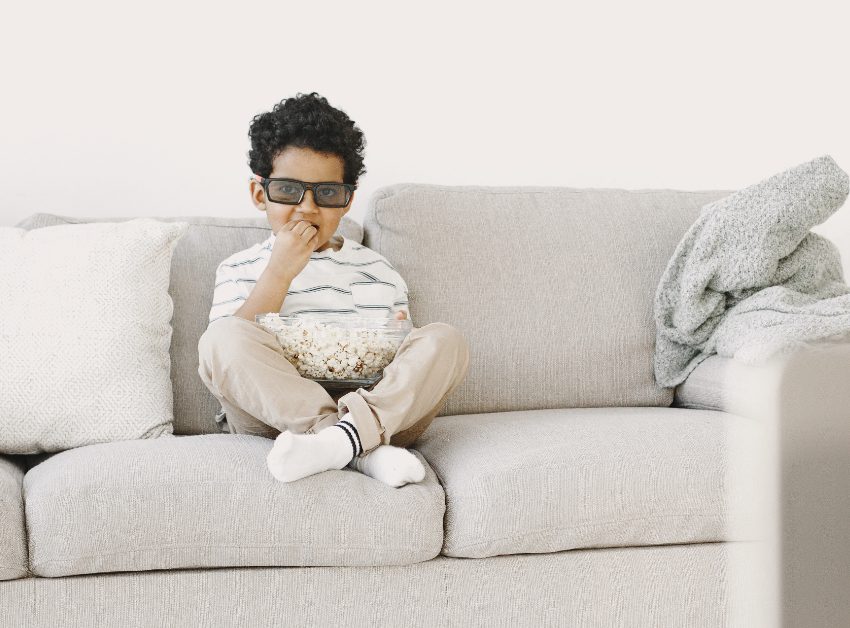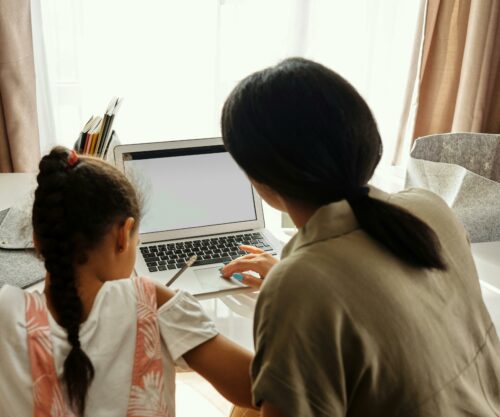
The first two years of a child’s life are considered to be a critical time with regards to brain development. Therefore, children under the age of two should not watch television at all. This is according to Anna Rodrigues, play therapist and counsellor. Anna stresses that though television and technology have broadened our horizons in many facets of life, they have inhibited a child from: playing, exploring and interacting with siblings, friends and parents. This has all contributed to learning as well as physical and social development.
Brain growth happens in direct response to external stimulation – real-world experiences, like speaking to your child about potatoes you’re peeling – this in fact is more educational than watching television programmes aimed at boosting the child’s intellect.
Dangers of too much television
According to Anna, there are many dangers with watching too much television. The most common include:
• Poor school adjustment: Watching television doesn’t involve any thinking or participation. Once a child starts school, it is difficult for them to adjust to the requirements expected in a classroom.
• Obesity: Sitting in front of a television for four hours a day can lead to eating too much junk food. As a result, junk food teamed with no physical activity leads to weight gain.
• Increased hearing problems: A child who watches television usually stare at moving images without really listening. In such cases, children end up relying on what they see to understand the content instead of grasping and hearing what is being said.
The two main areas of concern
• Violence: Viewing violence and aggression on TV has multiple detrimental effects on a child. It creates anxiety and aggressive behaviour and the child may start fearing that something bad might happen to them. In addition, violence on TV breaks all the rules we try to teach our children. This can be very confusing for a young child who’s trying to understand the difference between right and wrong. Especially for very young children, violence, aggression and scary things can frighten them as they are unable to tell the difference between reality and fantasy. This often leads to nightmares, bad behaviour and insecurities.
• Risky behaviour: Getting drunk; driving under the influence; smoking; taking drugs; explicit sexual scenes and more; can be seen by young children as ‘the cool thing to do’. This in turn leads to a child disrespecting their parents and elders – only because it’s perceived to be cool. Similarly, sex scenes can result in children losing respect for sexuality. And with teens who watch lots of sex on television, they are likely to participate in sexual activities before the average child.
The Answer
Research by Dr Dimitri Christakis, a paediatric researcher at Seattle Children’s Hospital in the USA, found that putting our time and energy into improving what our children watch – not just how much they watch – can have a positive impact on their behaviour.
She says:
• Take authority in your home by limiting television time
• Monitor what your children watch
• Ban television from the bedroom
• Don’t allow television viewing at supper time or while doing homework
Fun alternatives to television
There are dozens of ways to have fun without the television, they include:
• Playing outside – soccer, swing ball, hide and seek, etc
• Playing board games or doing puzzles
• Reading, dancing or listening to music. Perhaps even learning to play a musical instrument.
• Playing cards and learning card tricks
• Taking up a hobby like painting or knitting
Try swapping these fun alternatives with the robotic screen time provided with your child. Not only does it entice family bonding time, but lessens them at being anti-social.
By Lungile Khumalo
Also see: Parenting styles
Follow BONA for more!




